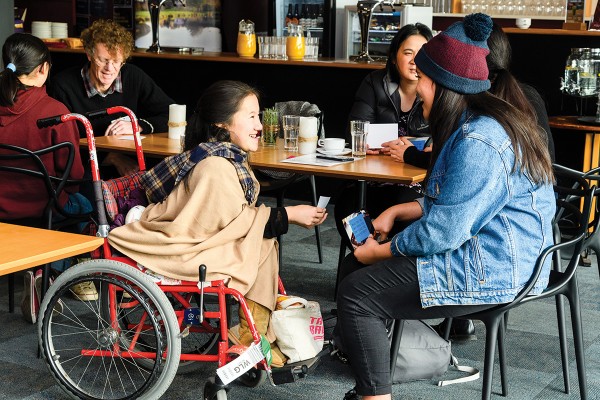OPINION: International students pay far more for their fees than domestic students, and, because there is no cap on how much the university can increase international fees, that amount only keeps going up every year for most of the departments.
On average, international students’ fees are 4.9 times more expensive than the domestic students’ fees, even though a recent report by Education New Zealand showed that international students contributed $117 million to Dunedin’s economy in 2015.
This disparity is because domestic students’ fees have a cap on the fee increase amount, which is currently 2%. However, the university course book stated that under current circumstances, the international students’ fee increase would be up to 5% per annum. Is this fair?
There’s a stereotype that all international students are rich. While it might be true for some, it’s definitely not the case for everyone. We all have different reasons for choosing to study outside of our home country and the decision usually comes with some, if not a lot of sacrifices. International fees are already absurdly high; capping the amount that the university can increase international fees by seems reasonable.
Some students are unable to overcome the financial barriers of constantly rising fees and do not finish their course. This is a very difficult issue as I understand how universities can struggle for funding, and the university staff are generally good people. However, the system is inherently unfair towards international students.
Fee increases supposedly depend on the number of anticipated enrolments to the course and the price of similar courses at other universities, in order to keep healthy competition to attract more international students. Each department has a different fee increase rate. Which means that one of the potential risks of putting an overarching cap on fee increases is that all departments might increase their course fees to the maximum allowance.
Another problem is that the discussion every year about how much fees are going to be raised is strictly confidential meaning we cannot find out about how much of an increase (or decrease) is proposed until next year’s fees are already approved, making it very hard to negotiate the increase. The international fees for 2019 have already been set. No students were consulted.
I would like to request two things of the university. First, that the process of deciding international student fees is more accountable and transparent so that international students don’t feel like the university’s ATMs. Second, that the fee increase for international students does not exceed the cap for domestic tuition fee increases, starting now.
I am currently calling for all international students to answer a survey so I can present the reality of how the international students fees have been impacting you to the University Council.
You can answer the survey by following this link: https://goo.gl/forms/nZaMYMrvO2nisrEj1



